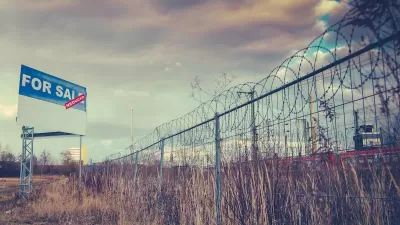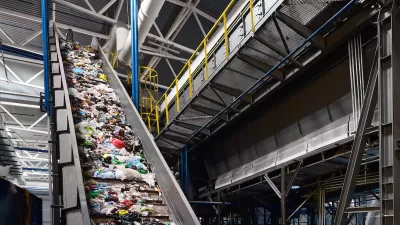Once at the cutting edge of the recycling revolution, the last decade has seen a precipitous drop-off in recycling in New Jersey. James M. O’Neill reports on the reasons for the decline and its effect on municipal finances.
As the first state in the nation to mandate domestic recycling twenty-five years ago, New Jersey was once at the forefront of the recycling revolution. However, while recycling efforts in other parts of the country remain strong, helped by the "robust" market for recycled products, the share of recycled waste collected in the state has dropped from 59% of all waste in 1995 to 41% of all waste in 2009.
O'Neill attributes part of the decline to the economy, "Recycling has declined locally in part because of the recent
recession. Consumers with less money translated into fewer products
purchased - and less need for containers or packing boxes. In addition,
declines in advertising meant fewer newspapers, inserts and circulars to
be recycled. Still, many items that can be recycled aren't making it into the bins."
"There's a recycling malaise. Recycling seems to have leveled off at a
time when there should be a renewed commitment," said Judith Enck, the
Environmental Protection Agency's administrator for New York and New
Jersey. "It's crazy to be burying and burning these resources."
FULL STORY: After falling behind in recycling, New Jersey looks for solutions

Trump Administration Could Effectively End Housing Voucher Program
Federal officials are eyeing major cuts to the Section 8 program that helps millions of low-income households pay rent.

Planetizen Federal Action Tracker
A weekly monitor of how Trump’s orders and actions are impacting planners and planning in America.

Ken Jennings Launches Transit Web Series
The Jeopardy champ wants you to ride public transit.

Rebuilding Smarter: How LA County Is Guiding Fire-Ravaged Communities Toward Resilience
Los Angeles County is leading a coordinated effort to help fire-impacted communities rebuild with resilience by providing recovery resources, promoting fire-wise design, and aligning reconstruction with broader sustainability and climate goals.

When Borders Blur: Regional Collaboration in Action
As regional challenges outgrow city boundaries, “When Borders Blur” explores how cross-jurisdictional collaboration can drive smarter, more resilient urban planning, sharing real-world lessons from thriving partnerships across North America.

Philadelphia Is Expanding its Network of Roundabouts
Roundabouts are widely shown to decrease traffic speed, reduce congestion, and improve efficiency.
Urban Design for Planners 1: Software Tools
This six-course series explores essential urban design concepts using open source software and equips planners with the tools they need to participate fully in the urban design process.
Planning for Universal Design
Learn the tools for implementing Universal Design in planning regulations.
Ada County Highway District
Clanton & Associates, Inc.
Jessamine County Fiscal Court
Institute for Housing and Urban Development Studies (IHS)
City of Grandview
Harvard GSD Executive Education
Toledo-Lucas County Plan Commissions
Salt Lake City
NYU Wagner Graduate School of Public Service





























